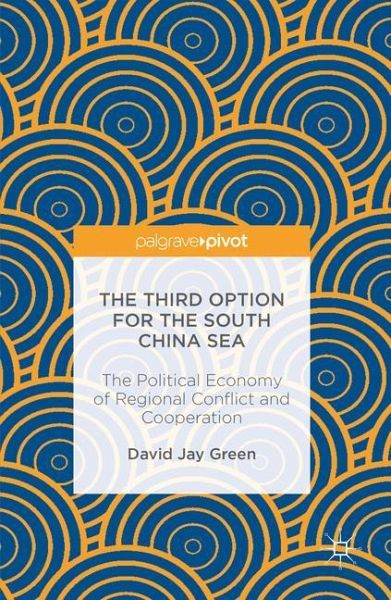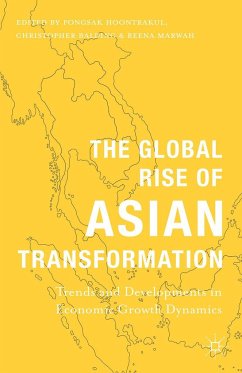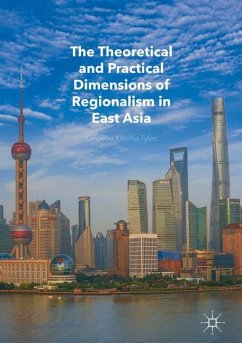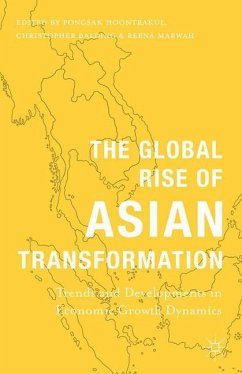
The Third Option for the South China Sea
The Political Economy of Regional Conflict and Cooperation

PAYBACK Punkte
0 °P sammeln!
This Palgrave Pivot uses a simple model from game theory to explain the behavior of countries disputing ownership of resources and of small islands in the South China Sea. It argues that the rapid transformation of the region's economy - the rise of Factory Asia - is not being acknowledged, leading countries to take chances beyond what a rational picture of costs and benefits would suggest. Regional economic cooperation may be a viable alternative to the present conflicts. However, the varied experience of regional initiatives in Southeast Asia provides a cautionary note that, while there is t...
This Palgrave Pivot uses a simple model from game theory to explain the behavior of countries disputing ownership of resources and of small islands in the South China Sea. It argues that the rapid transformation of the region's economy - the rise of Factory Asia - is not being acknowledged, leading countries to take chances beyond what a rational picture of costs and benefits would suggest. Regional economic cooperation may be a viable alternative to the present conflicts. However, the varied experience of regional initiatives in Southeast Asia provides a cautionary note that, while there is the potential for peaceful development of the South China Sea, there are significant challenges to structuring successful programs.














